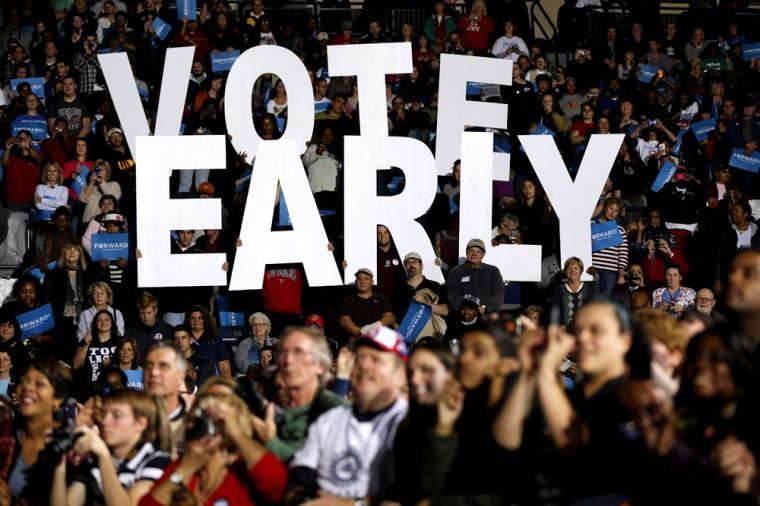Election Day at the polls is usually a hectic one, and many voters chose to vote early to avoid the chaos. While campaigning peaks during the presidential debates, many states opened early voting before the debates even began.
The presidential debates are often believed to be game-changers, but in reality, they have little effect on the decisions of voters.
Absentee voting began in September in several states, including North Carolina on Sept. 6. Early voting began in Vermont on Sept. 22 and in Wyoming and Iowa on Sept. 27, according to NBC News. By the time the first presidential debate aired Oct. 3, many voters from across the country had already submitted their ballots.
Although early voting in Louisiana began later than many other states, voters turned out in large numbers.
Absentee voting in Louisiana began Sept. 22, and in-person early voting opened Oct. 23. As of Oct. 30 at 4 p.m., 327,489 Louisiana voters cast ballots in advance, reaching 25 percent higher in early voting turnout than during the 2008 election, according to The Advocate.
It’s not uncommon to hear voters say they don’t like any of the candidates, and often, voters decide to vote based on party affiliation, instead of in favor of a specific candidate.
If some voters would have waited until the debates were completed, some might have been taken aback by President Barack Obama’s lackluster performance during the first debate.
Morgan Craft, business and marketing sophomore, said she voted on election day, but her mind has been made up for several months.
“I watched the debates,” she said. “It was good to see both sides, but I normally agree with one side more. My decision was pretty much maintained from everything I’ve seen from the past six months to a year.”
Many voters may have been decided from the start, but campaign distractions have blurred the issues in the minds of the undecided.
While most polls have indicated that the economy remains to be the top issue for voters, social issues continued to make headlines during campaigning.
Missouri Rep. Todd Akin’s controversial “legitimate rape” comment spurred conversation on abortion, and Democrats shed light on Gov. Mitt Romney’s shaky stance on the issue.
Romney and Obama also sparred over women voters in the “War on Women,” which the ACLU describes as “the legislative and rhetorical attacks on women and women’s rights taking place across the nation.”
Although these are important issues, they were distractions from the real problems, and it isn’t hard to see why some voters remained undecided so long into the campaigning season.
But most voters select their candidate months before Election Day and even the presidential debates, which were held on Oct. 3, 11 and 16.
According to Gallup, 24 percent of registered voters cast their ballots between Oct. 1 and 28.
Obama seemed to understand that most voters’ minds are already made up at this point.
On Tuesday, Obama played a traditional election day game of basketball with friends in his hometown of Chicago. While Romney and Republican vice presidential nominee Paul Ryan attended several last-minute campaign events, Obama kept it low-key by participating in radio interviews in battleground states.
If partisanship takes priority in our decision-making process, we are allowing candidates to slide by without having to prove themselves, and while early voting may be convenient, keep your eyes and ears open until election day.





